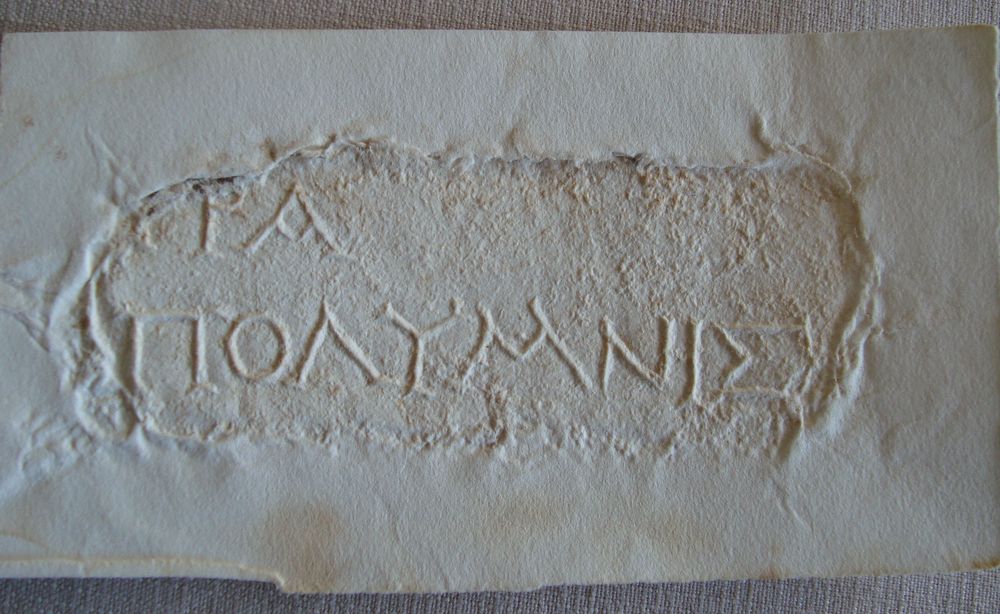EpiDoc XML:
IGCyr0890002
Trismegistos ID:
738438
Source description
Support: Grey white marble fragment preserving the right angle of a rectangular block with top, right side and bottom surviving; on top, an oval depression (w: 0.12 × h: 0.042 × d: 0.11).
Layout: Inscribed in 2 lines on front face.
Letters: 0.012; with serifs, alpha with dropped bar, sigma with parallel outer strokes, symmetrical pi, mu with a cursive shape.
Date: End of second or beginning of first century BC (lettering).
Findspot: Found between 1972 and 1975 at Martūbah ➚.
Place of origin: Findspot.
Last recorded location: Cyrene Museum, 2074. Seen by C. Dobias-Lalou in 1982 and again 1997 in Shahat: Cyrene Museum.
Text constituted from: Transcription from stone (CDL).
Bibliography
Mohamed – Reynolds 1998, p. 140 n. 1b, and Dobias-Lalou, BE, 1999.625, whence SEG, 48.2064; IGCyr 089000 ➚.
Text
Apparatus
1: η̣ρα: τ̣ρα Dobias-Lalou, BE; κ̣α Mohamed – Reynolds 1998
French translation
Ce [---] (scil. a été consacré) à [---], par Polymnis.
English translation
This [---] (scil. was dedicated) to [---] by Polymnis.
Italian translation
Questo [---] (scil. è stato dedicato) a [---] da Polymnis.
Arabic translation
هذا [---] (كان قد كرس) ل [---] من قبل بوليمنيس.
Commentary
Mohamed and Reynolds described the block as «probably an altar». However, the oval depression does not seem to allow this interpretation. One might better think of a basis supporting a circular basin.
The few letters surviving at line 1 can be clearly read from autopsy and squeeze, but for the first one, of which only the lower part of the hasta survives. Feminine names ending with τρα do exist, namely Cleopatra and others, but how could such a name be combined with a masculine name also at the nominative, especially on such an object? A more coherent reading might be the accusative -[λωτ]ῆ̣ρα, 'basin', for which see at IGCyr1203002. However it would be necessary to check again the fragments to push this suggestion ahead.
CC BY-NC-SA 4.0 Deed Attribution-NonCommercial-ShareAlike 4.0 International License.
All citation, reuse or distribution of this work must contain a link back to DOI: https://doi.org/10.60760/unibo/igcyrgvcyr2 and the filename (IGCyr000000 or GVCyr000), as well as the year of consultation.
